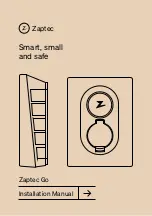
•
2
•
IMPORTANT SAFETY INSTRUCTIONS
1.
Risk of electric shock or fire.
Do not expose the charger to rain or snow.
1.1
Use only recommended attachments. Use of an attachment not recommended
1.2
or sold by Schumacher® Electric Corporation may result in a risk of fire,
electric shock or injury to persons or damage to property.
To reduce the risk of damage to the electric plug or cord, pull by the plug rather
1.3
than the cord when disconnecting the charger.
An extension cord should not be used unless absolutely necessary. Use of an
1.4
improper extension cord could result in a risk of fire and electric shock. If an
extension cord must be used, make sure:
That the pins on the plug of the extension cord are the same number, size
•
and shape as those of the plug on the charger.
That the extension cord is properly wired and in good electrical condition.
•
That the wire size is large enough for the AC ampere rating of the charger
•
as specified in Section 8.3.
To reduce the risk of electric shock, unplug the charger from the outlet before
1.5
attempting any maintenance or cleaning. Simply turning off the controls will not
reduce this risk.
Remove personal metal items such as rings, bracelets, necklaces and watches
1.6
when working with a lead-acid battery. A lead-acid battery can produce a short-
circuit current high enough to weld a ring or the like to metal, causing a severe
burn.
Do not operate the charger with a damaged cord or plug; take it to a qualified
1.7
service person. (Call customer service at: 1-800-621-5485.)
Do not operate the charger if it has received a sharp blow, been dropped or
1.8
otherwise damaged in any way; take it to a qualified service person. (Call
customer service at: 1-800-621-5485.)
Do not disassemble the charger; take it to a qualified service person when
1.9
service or repair is required. Incorrect reassembly may result in a risk of fire or
electric shock. (Call customer service at: 1-800-621-5485.)
PERSONAL PRECAUTIONS
2.
Risk of explosive gases.
Working in the vicinity of a lead-acid battery is dangerous. Batteries generate
2.1
explosive gases during normal battery operation. For this reason, it is of
utmost importance that you follow the instructions each time you use the
charger.
To reduce the risk of a battery explosion, follow these instructions and those
2.2
published by the battery manufacturer and the manufacturer of any equipment
you intend to use in the vicinity of the battery. Review the cautionary markings
on these products and on the engine.
Summary of Contents for SE-4225
Page 2: ......







































